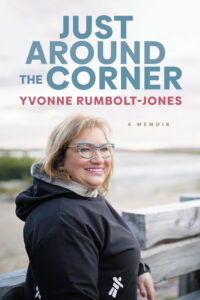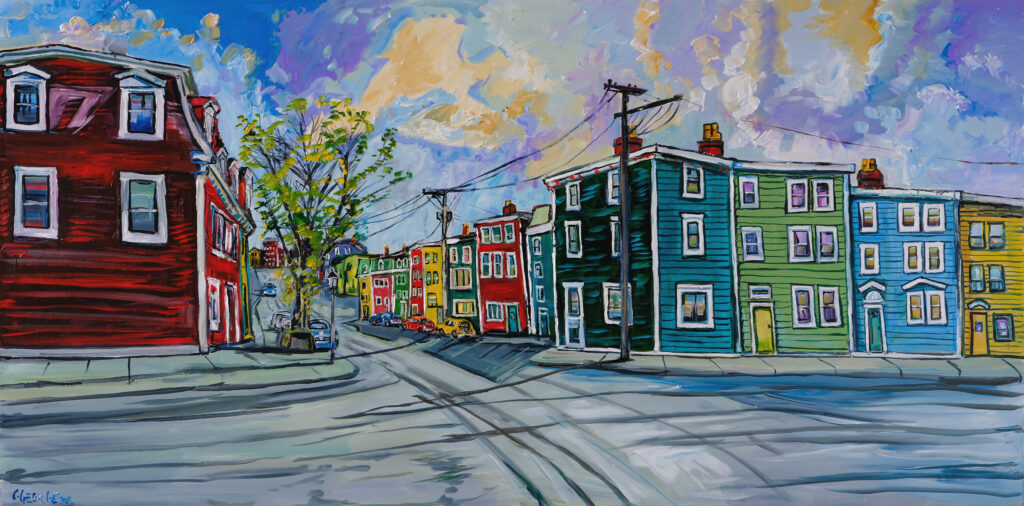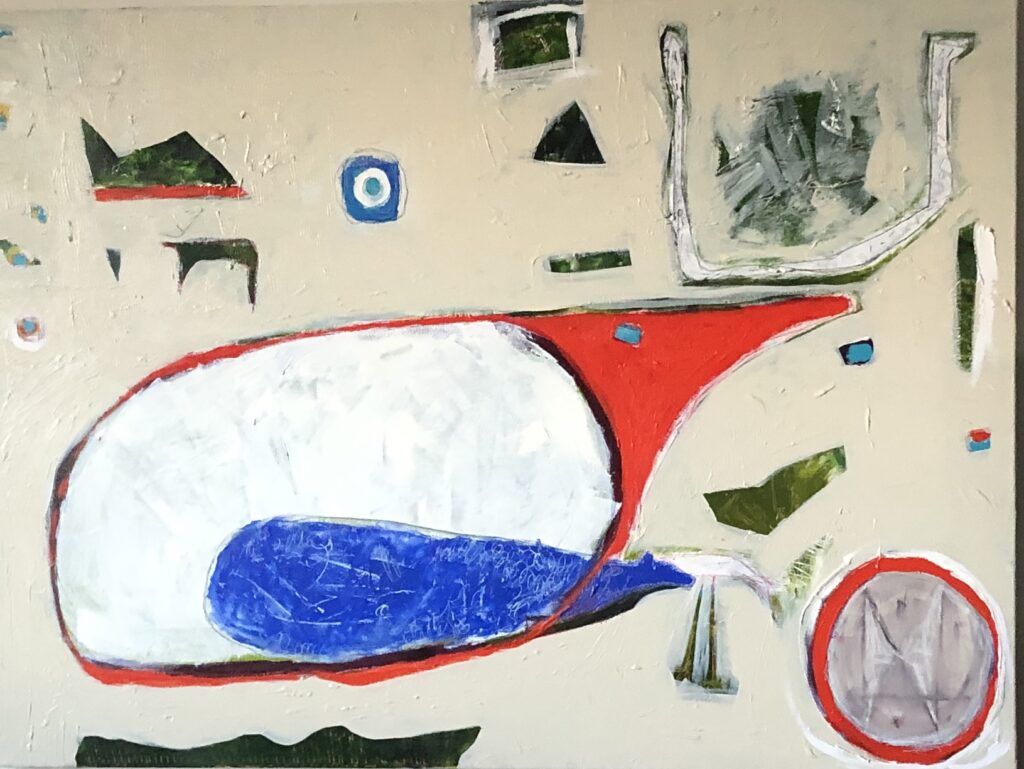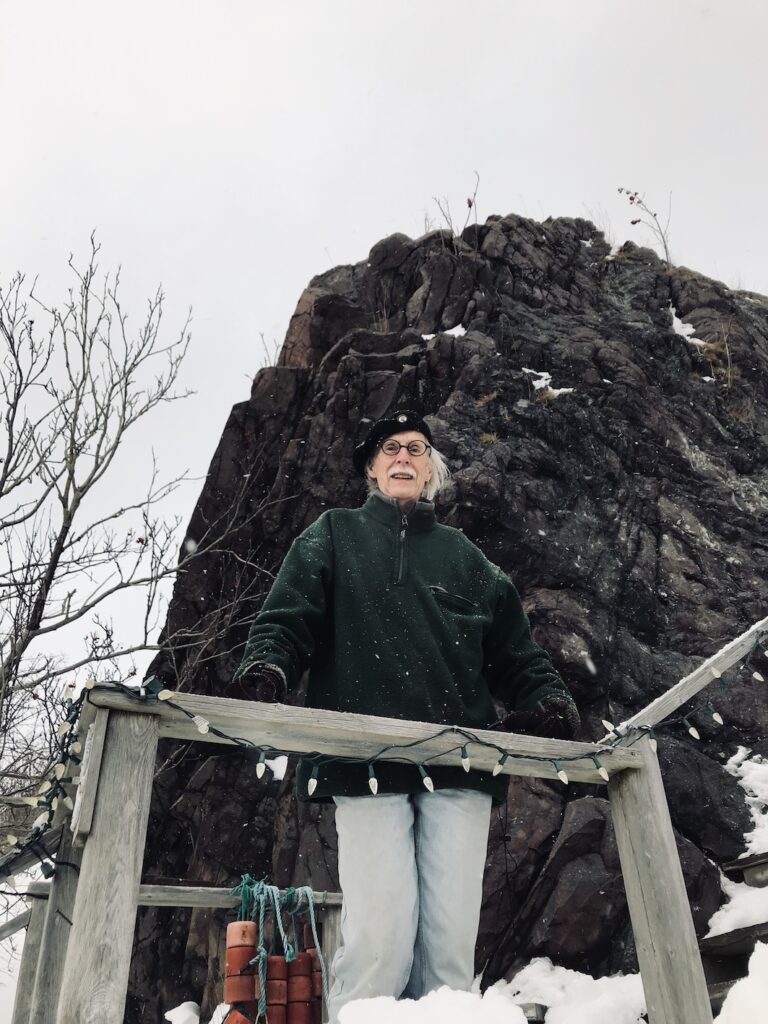Yvonne Jones looks Just Around the Corner
April 2025
Congratulations on your new memoir. Where did the idea of the book come from?
For a long time in my life I felt that I wanted to tell my story, and when I say I wanted to tell my story I wanted to talk about things that had happened to me in my life that I felt was a challenge to deal with but I always found a way to get through, I always found a way a way to keep progressing. In my job I’ve seen a lot of girls and boys who have lived a similar life that I have, even 50 years later, and I thought that maybe telling my story could provide some inspiration for them to move forward in their own lives. You can be successful regardless of things that have happened to you even when you have no control over them. That was the catalyst. I had thought about that. And then I decided I don’t know if I can do that. I had never told anyone my story, my life and things that have happened to me. And I’d never sought counselling, I’d never done anything like that. It was mostly something I had buried for a long time. But through my entire life it surfaced over and over again. And it surfaced in so many different ways. At the end of the day I said, you know something? I’ve spent 30 years being a politician, and I’m known as a politician, and I’m happy with that, but I also have a story to tell that could help other people. And I’m going to tell my story. And that was the reason I wrote the book. And that’s why in this book you will read very intimate things that happened to me in my life, and someone said to me after they read my book how does it make you feel knowing your book is out there? I said I feel like I’m naked standing in the middle of the road. And I’m not sure if I keep going forward or what I do right now. I think as the book sells and I hear from people I’m feeling not as naked anymore. I’m feeling a lot of warmth around me, a lot of support, I’m talking to a lot of people who have shared a history similar to mine, and I’ve had a lot of outreach from people. So even though I know I’m naked in the middle of the road, I don’t feel alone anymore. And that’s the difference.
You have a real knock for contextualizing the events surrounding your career. Did you keep a diary?
I didn’t keep a journal or diary but I always had notebooks. So lots of things in my life I wrote in these notebooks. Not personal things but my job, my work, where I was on certain days, events that happened, things like that. That became a really good source of information for me. The other thing is there’s a lot of recorded history of me because of my job, so I went through a lot of Hansards, media interviews, scrapbooks, for current events, background history. I did a lot of research. And then I started to put it all together. When I went through cancer the last time, I knew more of what to expect then I had the first time. I knew that I would have good days, and I would have bad days. And I also knew when I had good days I couldn’t tie myself to my job because the next day I mightn’t be able to go to work. So what I did was I took on doing my book as my good day hobby. Days I felt good I worked on my book. And I wrote things, I jotted down stories, I wrote down thigs I knew I wanted to talk about and that was when I talked about the dark chapters that are in this book, it was during that process. And I think that was for two reasons. One, I think I was finally at a place in my life where I could talk about it to myself which before I could not. And secondly I also felt that telling my story was going to be important. And as I got into it more and more I found it became therapeutic to me. So even though I was going through cancer and writing about this, I’m realizing that you’ve already survived so many things in your life, so it was a sense of hope and optimism of where I was at that particular time as well. And I had a program called Dragon, a little ap, you buy it, you get a headset, and you put it on your device and you talk into it. And it types everything for you, it’s a voice recognition typing system. So I would do lots of walking, and talking into my device. I was staying with friends for several months down on Waterford Bridge Road and I would walk along the river, and would talk for a couple of hours, telling my story, talking about those dark days, and that’s how I dealt with it. And it was the first time I ever confronted any of those things in my life. It was both difficult and at the same time very therapeutic. I fell better because of it, I was more hopeful because of what I had gone through, so it was a great exercise for me.
So the trauma you suffered as a child – it was always going to be part of the story?
From day one it was one of the main reasons that I wrote the book. But I also knew it had to be a piece between my personal life and my public life, and bringing both together was where I was having the most difficulty. I’m not an author – I’m a journalist, but I’m not an author. So bringing it together in a storyline, that’s where I had some challenges. Jocelyne Thomas helped me a lot to bring the material into the right format. She was extremely helpful as editor.

How did you balance the personal and the political?
It was difficult because I have a lot of history – how do I select what’s most important, what the reader might want to hear? The book as published is probably 150 pages shorter than what it was when I started. There’s probably enough material taken out that I could do another edition. That was where I found a challenge: what stays in, what goes out, and how do I make the storyline flow that you’re a person, you’re not just a politician. You have a family, you have other responsibilities. I think the book kind of gets at that really nicely, I talk about what I was doing when I was going through a divorce, the issues I was dealing with, and when I was dealing with the breast cancer faulty hormone testing and the inquiry and being diagnosed myself right after. I think it really gives you the politician, but also the woman. And that’s what I was hoping for. I just feel that’s we’re living in a time and period where people don’t have respect for politicians, in terms of the role they play in our democracy, in governance, politicians today are abused extensively on social media, verbally abused, in many cases even their families are harassed, so bringing people into politics is very difficult today. Yet it one of the most critical occupations in our society. Just like a doctor can save your life, which is probably the most important profession in our society, politicians determine how you live your life in lots of ways, the rules that dominate society are made in a political arena. And more time and thought needs to go into people that you elect to public office. And what they’re bringing to that public office. People don’t look at that anymore. They look at politics as a political sport more than anything else, popularity plays a big role, not responsibility, or accountability. In many cases when you’re going into an election, and then when you’re elected, even though you’re the same person you were before, all of a sudden you’ve subjected yourself to ridicule, verbal abuse, all of which is unnecessary, unwarranted, and unacceptable in my view. And I don’t think there’s any profession in society today that takes more verbal and social media abuse than politicians to.

You’ve served in all three levels of government – municipal, provincial, and federal. Do you have a favourite?
Provincial politics. Because it was close to home. Newfoundland and Labrador is very much a big part of who I am. And I always felt that when I was in the provincial legislature that I was making decisions for people that I knew very intimately. Federally, it’s somewhat similar but you’re dealing with a national population of Canadians that have diverse backgrounds, diverse needs, it’s a more challenging environment to work in, and I enjoyed it a lot, but every level of government in different. Municipality is about building communities, and making them healthy, successful, and strong. Provincial politics is really about looking after each other, across the province through different industry sectors, supporting the fishery, supporting oil and gas, tourism, writers, the arts. It’s about that kind of foundation. And federal is more about how you build a stronger country, with policies that work like acceptance of diverse cultures, realizing that we’re not all the same, realizing that there has to be regulations that support everybody and keep us united and inclusive. It’s about human rights, it’s about international rights. It’s about building a strong military and safety and security presence. Things that you don’t often deal with at a provincial or municipal level. Every level of governance is different and the work you do there is different. I’m a very people-oriented person and provincial politics allowed me to be closer to people and in contact with people more whereas federal you’re more removed from community events to national events and conference and round table discussions, it’s a different picture. I’ve enjoyed all of them but federal politics was impacted tremendously by social media in the last 15 years.
Part two of our conversation with Yvonne Jones will be posted next week.
All sales proceeds of Just Around the Corner go towards the Labradorians of Distinction Awards.
This interview has been lightly edited for clarity.



